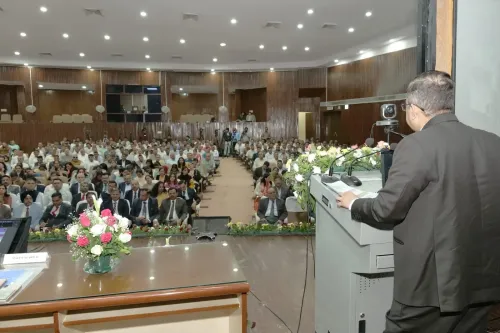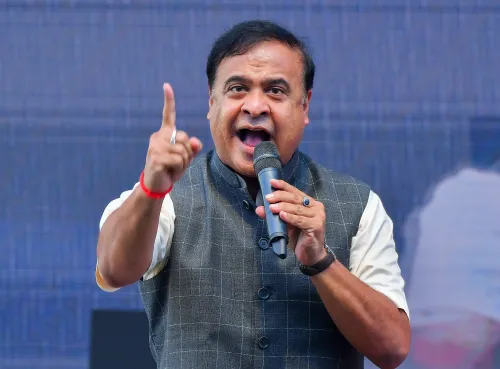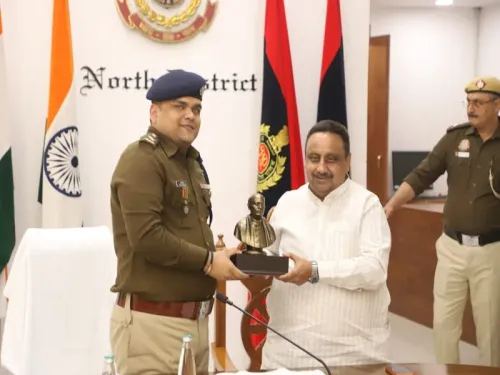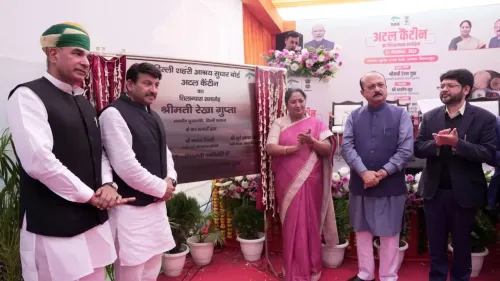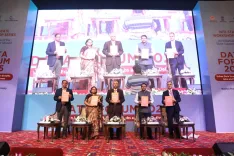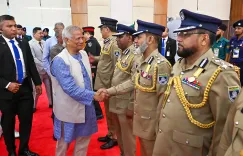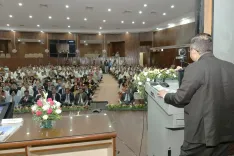What was discussed in the state-level meeting on oil and chemical disaster preparedness in Gujarat?
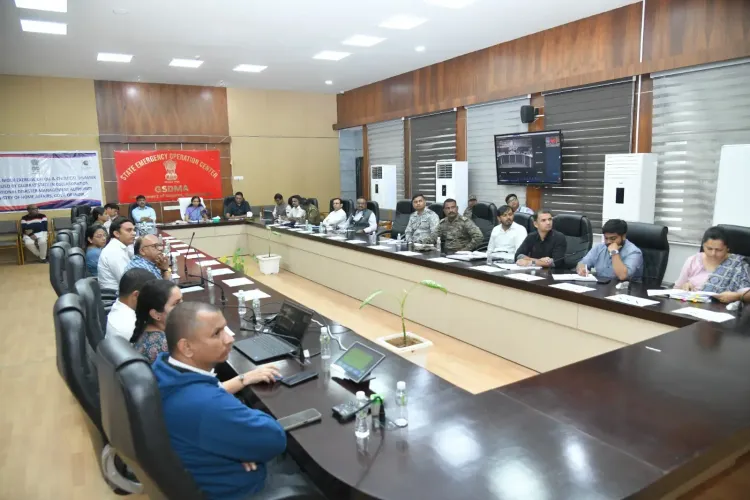
Synopsis
Key Takeaways
- Robust emergency preparedness is critical for Gujarat's industrial safety.
- The state conducted mock drills to assess emergency response capabilities.
- Coordination among various agencies is essential for effective disaster management.
- Gujarat's industrial hubs face elevated risks of accidents.
- Continuous focus on safety protocols is necessary to protect the environment.
Ahmedabad, Nov 21 (NationPress) A state-level review meeting focused on oil and chemical disaster management took place in Gandhinagar, Gujarat, chaired by Additional Chief Secretary Jayanti Ravi.
The Collectors from Jamnagar, Devbhumi Dwarka, Kutch, Bharuch, and Surat participated via video conference.
This event was a collaborative effort between the National Disaster Management Authority (NDMA), guided by Prime Minister Narendra Modi, and the Gujarat State Disaster Management Authority (GSDMA), led by Chief Minister Bhupendra Patel. They conducted mock drills to enhance emergency response to oil and chemical incidents across the districts with significant refineries and chemical hubs.
The meeting took place at the State Emergency Operation Centre (SEOC) to evaluate the level of preparedness.
During the session, Ravi requested comprehensive reports from district collectors regarding the mock drills executed at critical industrial sites in Jamnagar, Dwarka, Kutch, Bharuch, and Surat.
She emphasized the need for improved coordination, response strategies, and readiness for any potential industrial calamity.
The main aim of the mock drills was to gauge the state's capacity for quick reactions to accidents within the oil and chemical sectors, assess inter-departmental collaboration, and evaluate the efficiency of workforce and resources.
As Gujarat stands as a highly industrialized state, ensuring robust emergency preparedness—particularly in areas that host major refineries, chemical clusters, and storage terminals like Jamnagar, Hazira, Vadinar, and Kandla—is vital.
Officials from NDMA, GSDMA, SEOC, NDRF, SDRF, various defense forces, and relevant departments attended the meeting.
The Collectors from Jamnagar, Dwarka, Kutch, Bharuch, and Surat updated the state administration on the execution and results of district-level mock drills through video conferencing.
The state's extensive coastline and industrial corridors are home to refineries, petrochemical facilities, chemical manufacturing plants, LNG terminals, and storage sites, establishing it as a pivotal area for India's energy and chemical economy.
With a high concentration of industrial operations, Gujarat faces increased risks of oil spills, chemical leaks, and industrial accidents, necessitating ongoing emphasis on stringent safety measures, mock drills, inter-agency collaboration, and disaster preparedness to protect workers, infrastructure, and coastal ecosystems.

